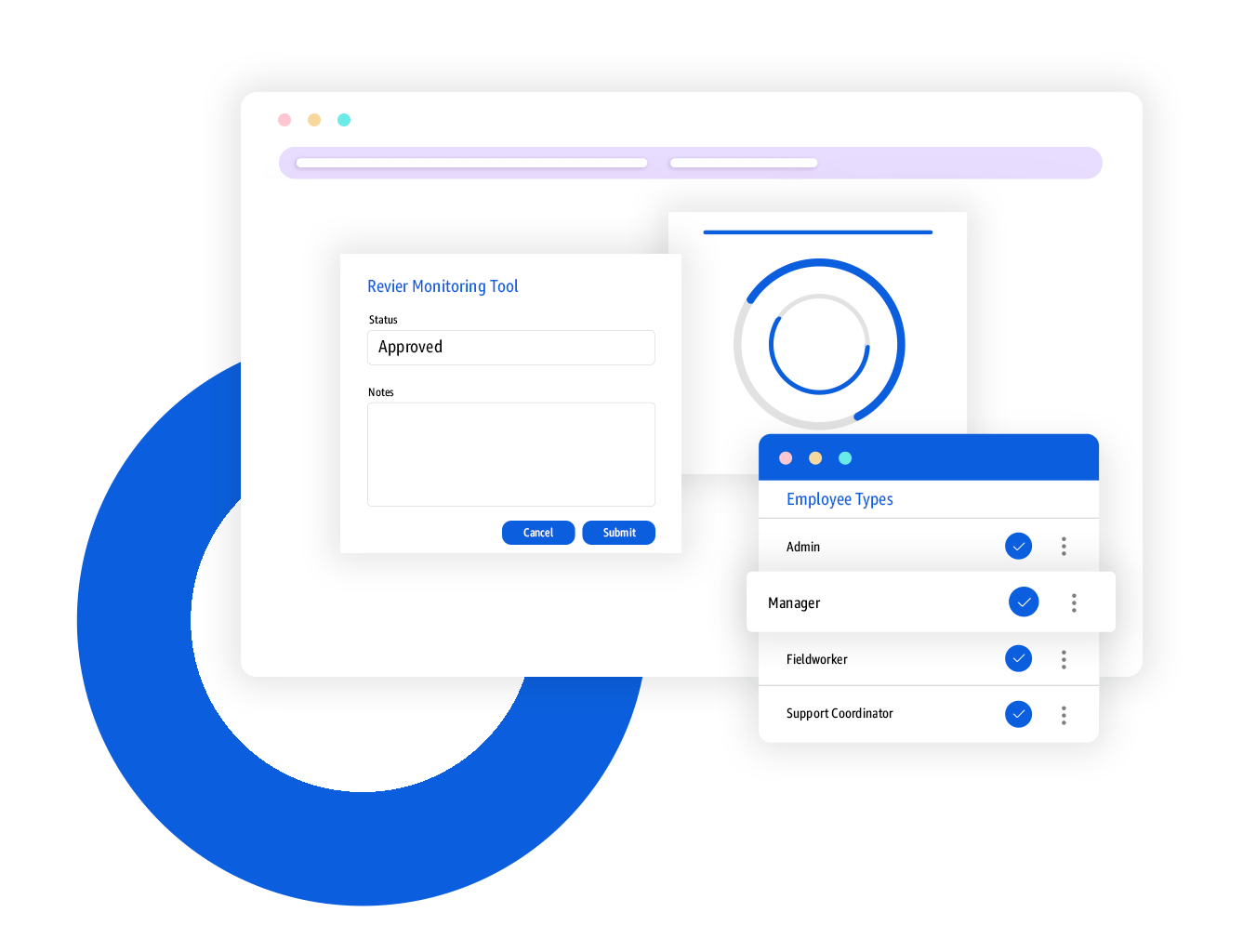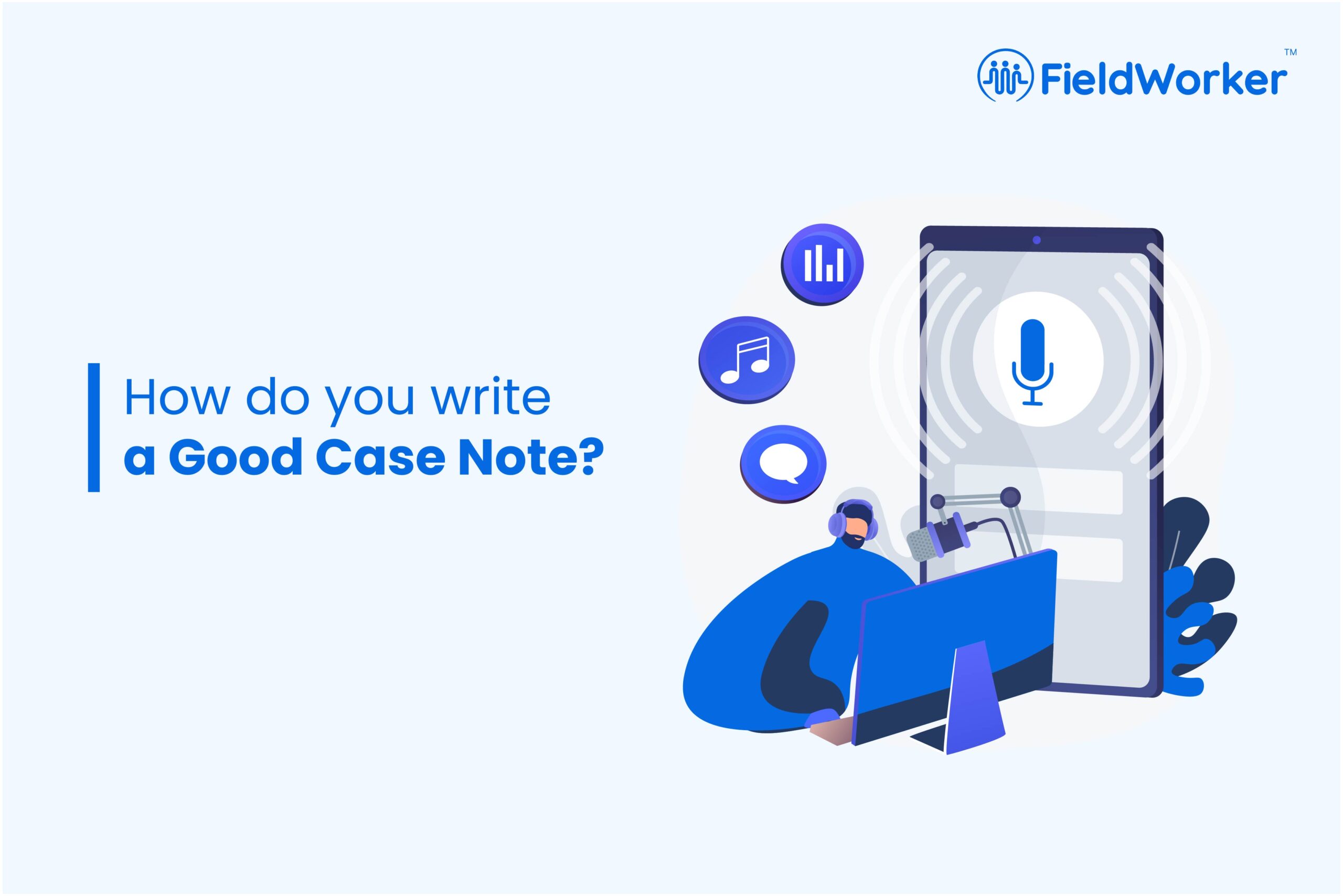In a recent survey, it was found that 6 out of 9 care providers admitted they are not able to update case notes regularly. This raises an important question: How do case notes affect client outcomes? Understanding the impact of well-written case notes is crucial in care management.
This blog further explores, the link between detailed case notes and better client care and their contribution to supporting social workers in delivering high-quality care to their clients.
Case notes in social work are crucial documents that include client demographics, history, care program progress, and interactions, keeping social workers informed about each case’s status. They also contain details like care provider information, service type, service location, date of service, and purpose of client interactions.
These notes are essential for social care organizations, case managers, and care providers to maintain up-to-date client information, facilitate tailored solutions, and adjust care plans when needed. They also serve crucial roles in managing billing and insurance records and ensuring legal compliance with care service documentation.
What are Effective Case Notes like?
- Compliance Ready: accurate and detailed records that meet the requirements of payers, state agencies, and grant providers, ensuring your agency is always audit-ready.
- Well integrated: provide a comprehensive view of each client’s history and needs.
- Searchable Records: easily search and retrieve case notes, making information accessible through mobile or desktop, when needed.
How can you maintain Effective Case Notes?
Frequently spending hours handwriting case notes on sheets of paper can result in a loss of valuable time, overlooking crucial case details, or inadvertently forgetting to document the case note altogether.
To overcome these challenges in note-taking, leveraging case note software tools is highly recommended. These tools allow users to digitally capture their case notes with ease and flexibility. You can collect, record, store, and update notes conveniently on your mobile device or desktop, eliminating the time-consuming task of handling extensive paperwork.
Tips to Structure Case Notes for Better Client Outcomes
Keep your notes simple
Writing effective notes means filtering as many additional details as possible. Use simple vocabulary for easy comprehension, bullet points for quick readability, and ensure to highlight or underline key terms for quick summary extraction.
Taking simple notes also helps maintain continuity of care, letting social workers provide the right care as needed by the client.
Avoid writer’s bias
The purpose of case notes is to keep you and subsequent social workers or agencies informed of the exact case details, therefore the health condition, the status of progress, the cause of unease, and health needs. Even the recorded case interactions and interventions must be centered around these details.
However, social workers can sometimes be biased or emotional in their note-taking. For instance, writing why a client is feeling a certain way or what their actions are in response is a better case note rather than plainly stating that they feel a certain way.
Maintain a checklist
Ensuring your notes are relevant is key to making good case notes. They help during reviews and also helps avoid writer bias. To do this, you can make a short checklist of questions, key topics, or terms to ensure your resulting notes are focused and are being written to meet these parameters you have pre-planned. This helps you take notes quickly, immediately and saves time.
Think of checklists as a stand ‘to-write’ list that maintains consistency and objectivity across all your case notes.
Take notes immediately
After every session, remind yourself or use a reminder to record your notes within an hour. Research shows that our brain tends to retain only 50% of information after an hour, and about 70% within 24 hours. This means that you might miss out on important information that can be an essential part of your client’s program outcome.
While handwriting your notes can give you control of your note-taking, using case note software tools heightens your note-taking ability by ensuring your case notes are concise, complete, and accurate. Type or audio record on your mobile phone or tablet to record notes in minutes.
Take digital notes
The key to writing good case notes is updating them as soon as you can. This is made possible with versatile case management software tools. FieldWorker is one such platform that offers its users tools to record case notes with flexibility.
Be it text notes or audio notes, the user-friendly platform makes it easy for users to record case notes as they like. Maintain updated information with FieldWorker’s mobile app to take notes on the go, at any time. The well-integrated platform seamlessly lets users access, edit, and share notes far after they have been drafted through their desktop app as well.
Parting thoughts
Writing effective case notes is essential for social workers to improve client outcomes and ensure smooth agency operations. To write good case notes, simplicity is key. Use clear language, bullet points, and avoid personal biases to keep notes concise and objective. A checklist helps maintain focus and accurately record all relevant details.
These notes capture essential client information such as client interactions, and program progress, and ensure compliance with mandatory standards. Recording notes promptly after each session is crucial. It helps capture fresh and comprehensive information, vital for effective client care planning.
Modern case management tools such as FieldWorker facilitate quick digital note-taking and seamless access across mobile, tablet, and desktop devices. Embracing these tools ensures streamlined documentation, improving client care and cultivating a growth environment for both your agency and clients.
Maintain professional standards and positively impact client well-being with audit-ready, integrated, and compliant case notes.
Uphold professional standards and positively impact clients’ well-being with the advantage of effective case notes with FieldWorker – your partner in delivering exceptional client care.
Try our 14-Day Free Trial today, make your case notes your key to achieving better client outcomes!

